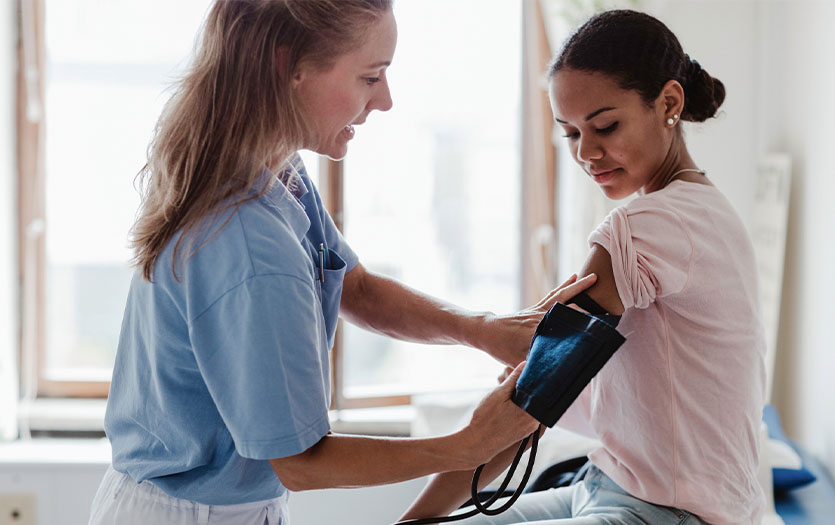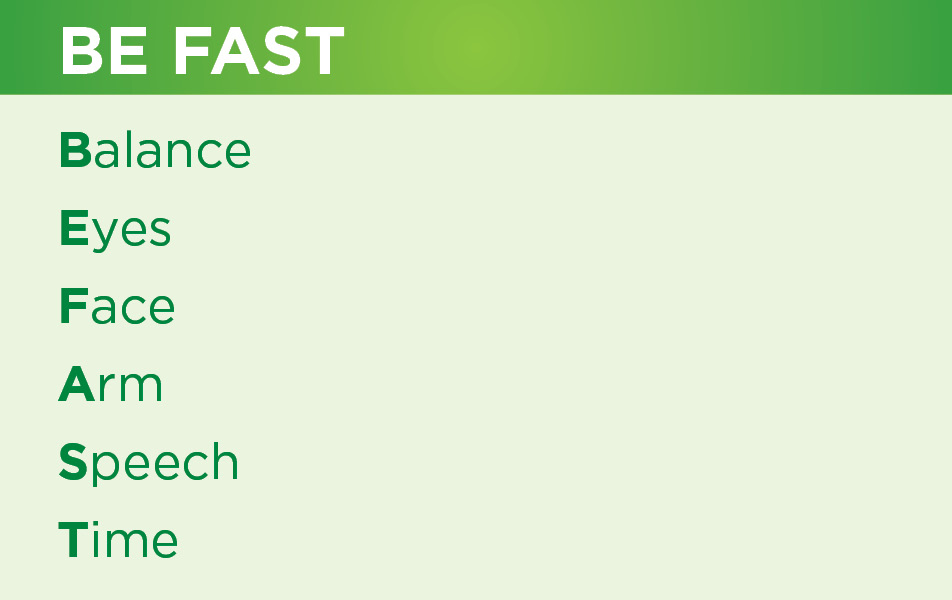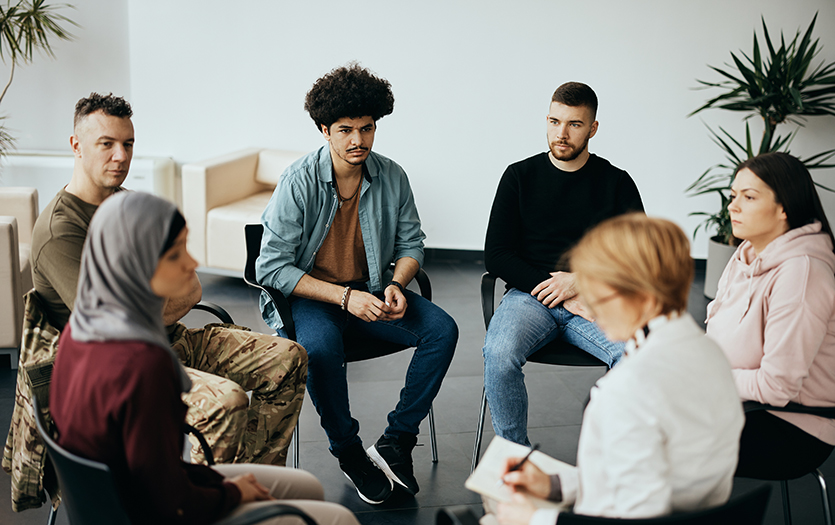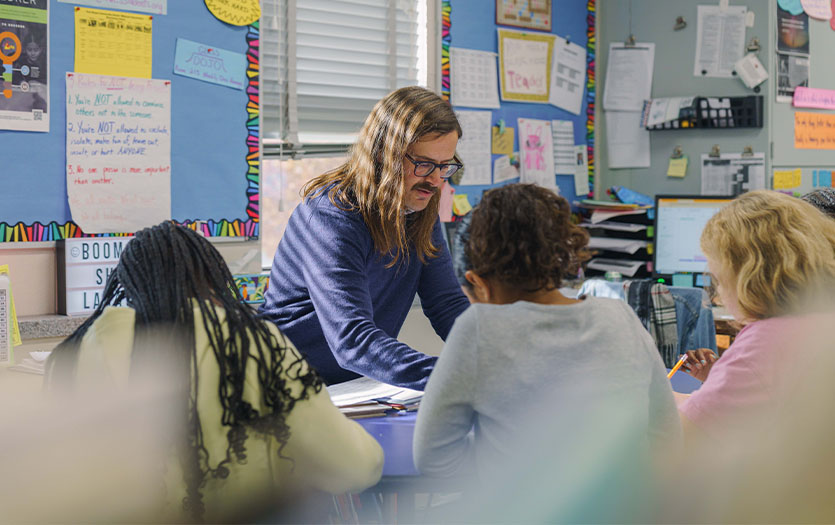
More than 600,000 people in the United States die from heart disease each year, making it the No. 1 cause of death among both men and women. Data collected by the Allen County Department of Health shows an increase in the number of natural deaths attributed to heart disease from 2018 to 2021. What many don’t realize, is that heart disease greatly increases an individual’s risk of stroke.
Every 40 seconds, someone in this country has a stroke and every 4 minutes, someone dies from stroke. Stroke is also the leading preventable cause of disability where early intervention can eliminate or greatly reduce the likelihood of long-term, serious disability.
Although common for many adults in the U.S., only half of those with a hypertension diagnosis successfully manage their blood pressure. Many individuals, especially those who face greater health disparities, don’t know they have high blood pressure until symptoms of heart disease (chest pain, shortness of breath, palpitations, dizziness, fainting or stroke) send them to the ER. Often, this means the individual is in a more advanced stage of hypertension that can lead to long-term health problems or fatality.
Since 2014, Parkview has seen an increase in coronary heart disease, stroke, heart attacks and hyperlipidemia in Allen County. There is evidence that a systemic approach to hypertension management can improve cardiovascular- and stroke-related health outcomes for individuals. Prevention and education around the risk factors, signs and symptoms of stroke, and reasons for taking immediate action can make a huge impact.
The grant
In 2022, the Parkview Neurosciences team completed and were awarded the IDOH Health Issues and Challenges Grant, which is supported through the American Rescue Plan Act (ARPA) to fund entities within Indiana to implement programs focused on addressing health issues and challenges within our state. The funds must be used to develop and implement services focused on increasing health outcomes and preventing and/or reducing the prevalence of one or more priority areas, including public health prevention programs and chronic disease.
The plan
Parkview believes that providing knowledge helps individuals have more control when it comes to maintaining healthy practices to control chronic conditions, such as hypertension. With this in mind, the Neuroscience team created a Neuroscience Outreach Network– a program to facilitate and disperse life-saving information to participants’ families, friends and community. The network includes key community partners, resources and providers from throughout the health system and a foundation of education to raise awareness.
There are three main goals of this outreach:
- Make hypertension control a priority for community members.
- Provide patient and community outreach for hypertension screening and management.
- Strengthen patient and community trust in the quality and safety of care, treatment and services for stroke prevention and interventions.
In partnership with the Indiana Department of Health, Parkview Health has been utilizing grant funds to develop and implement services focused upon improved health outcomes that target preventing and/or reducing the prevalence of cardiovascular disease and associated risk of stroke and secondary stroke.
Community partners and target populations
Neurosciences is tapping into community partners like the YWCA to act as external screening locations, where individuals can be referred to resources and services they need to manage their health. These partners are in predominantly medically underserved areas in southeast Fort Wayne, where we see high rates of households without a vehicle, making it difficult for many to travel to healthcare appointments. Most of the Allen County’s Black, Hispanic and Asian populations are concentrated within southeast Fort Wayne. According to the American Heart Association, in 2013-2016, 57.1% of non-Hispanic (NH) black females and 60.1% of NH black males had some form of cardiovascular disease.
Our community partners cater services toward individuals who often face multiple barriers to receiving healthcare and health education. They experience the highest poverty rate, highest percentage of uninsured, and lowest educational achievement rate in the city. These residents often face significant health disparities in access to care and unmet health needs and have been identified as food deserts by the USDA, resulting in low access to healthy, affordable food.
Putting the grant to good use
Mary Ann Wissman, MSN, RN, HN-BC, Neuroscience community outreach coordinator, Parkview Health has more than 20 years of experience developing and providing educational programs to benefit the health of our community. While she coordinates screenings all over northeast Indiana and northwest Ohio, she had one particular passion project. “Before COVID, I had a program at the Renaissance Pointe YMCA, called ‘Health is Wealth.’ It was just for middle-aged men and we met once a month to talk about wellness,” she said. At that time, Parkview had a blood pressure kiosk at the same YMCA location. “People were taking their blood pressure, but they didn’t understand what it meant. They weren’t getting any guidance. I was with Parkview’s Community Nursing team at the time, and they approached me about what could be done. I didn't want to just take blood pressure readings, I wanted a program.”
After the pandemic subsided, Mary Ann went to work revamping her pre-COVID efforts, now fueled by additional resources. “With the grant, I was able to expand what I was doing before,” she said. The new stroke awareness group meets the second Wednesday of every month at the Renaissance YMCA (2323 Bowser Ave.), from noon – 1 p.m. “I returned to the Renaissance YMCA because I like that it’s a place for wellness and exercise. We opened it up to men and women of all ages and let them pick the topics for the year. I wanted them to feel like this was their group and I was just there to facilitate. The subject varies, but we always have screenings, speakers and education.”
Each gathering begins with blood pressure checks, so regular participants–many of whom have been coming since the program launched in November 2022–can track trends in these readings. In addition to one-on-one consultations about their numbers and education, stroke BEFAST criteria and hypertension information, attendees enjoy informal, intimate conversations on a variety of wellness topics with guests from the health system.

For the inaugural year, participants chose discussions on how blood pressure affects the eyes, exercise, diabetes and hypertension, holistic living and essential oils, nutrition with samples from the Parkview Community Greenhouse and Learning Kitchen, stress reduction, how to manage medications and lifestyle shifts to avoid medications, and how to grow fruits and vegetables.
“For one of our meetings, we went to LC Nature Park in Roanoke, to talk about how to reduce stress and the beauty of our grasslands, wildflowers and surroundings. It was amazing–when we did the blood pressure screenings, almost everyone’s blood pressure was normal,” Mary Ann said. “We also had a few people bring children, which was wonderful because they heard us talking about healthy habits and the value of nature. They were learning, right along with the rest of the group.”
And those connections are a primary objective of the Neuroscience team’s outreach efforts. “We’re really building trust,” Mary Ann said. “Our participants are becoming more aware of the need to be healthy and to share the information. They’re taking these lessons back to their churches, friends and family.” This is huge, given some of the challenges around getting all community members to believe in and pursue medical intervention and routine care. “One of the men who attends said, ‘Trust between the community and hospitals is sometimes pretty poor, but we trust you and we trust what you bring to us.’ It’s really wonderful.”
That earned rapport has other benefits as well. “Ultimately, these relationships tie back to the outcomes we want for these participants and their loved ones, which is to understand the risks of stroke, the signs and symptoms (BEFAST) and that they need to call 911 and trust the hospital will take appropriate care of them,” Julie said. “We see disparity of recognition and response and getting to the hospital in time to get treated. The window to get that clot-busting medication is only 4 1/2 hours, so they need to arrive soon enough to get assessed and get that medication right away.”
The group also serves as a way for Mary Ann and support team members to refer participants to other services they might need, such as podiatry checks, community resources and orthopedic specialists. They get a few additional goodies as well. “Blood pressure screenings are always the first thing we do,” Mary Ann said. “This month, through grant money, we were able to provide regular participants their own at-home wrist blood pressure cuffs. I gave them logs so that they can track their numbers and make note of what they were doing when/if it was elevated.” They’ve also received various items, resources and samples tied to the meeting’s topic. Everything comes back to hypertension and stroke risk education.
The group includes men, women and, occasionally, children, of different ethnic backgrounds, with ages ranging from 20–70+. You don’t have to be a YMCA member to attend the free gatherings, but Mary Ann is always looking to add new faces. “The goal is always for everyone to bring a friend or family member,” she said.
Expanding their reach
In addition to the monthly group meetings at the Renaissance YMCA, Mary Ann also coordinates screenings and information tables at health fairs throughout the communities Parkview serves, always keeping underserved populations at the forefront of their outreach efforts. They partner with other areas of the Parkview health system to lend their expertise at events, symposiums, and group meetings as well. “I always have the best nurse volunteers who come and do blood pressure checks,” Mary Ann shared.
This was on display in spades at the recent Strike Out Stroke event at Parkview Field. In early August, the Neuroscience team had the opportunity to put the grant money to use and reach 7,300 people at the ballpark with screenings, education, coloring pages and information for children and an inspiring stroke survivor story. “It was just incredible,” Mary Ann recalled. “We had Parkview Neuroscience physicians there, our stroke awareness group from the Y, our survivor, Betsy, and nearly 40 people there to support her! We educated everyone there that night with a BEFAST video on the jumbotron and then Betsy threw out the first pitch. It was wonderful to see so much support for our program and to be able to reach so many.”
Looking for resources?
If you would like to learn more about what upcoming health fairs, or what Parkview has to offer for heart health prevention, condition management and stroke education, including our Stroke Support Group, email neurocommunityoutreach@parkview.com.



